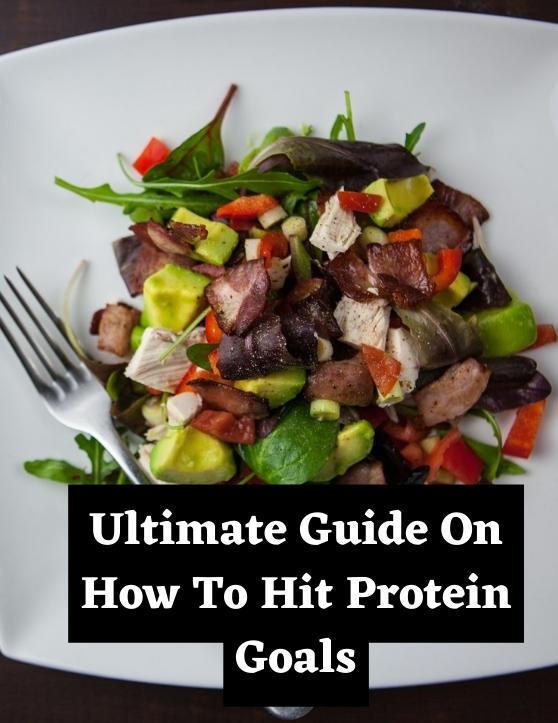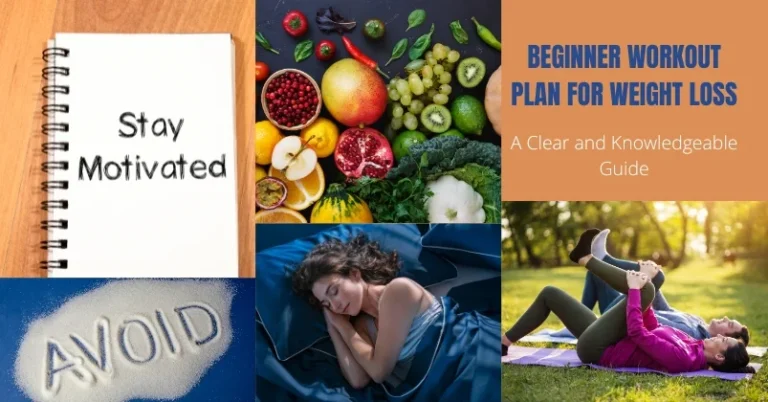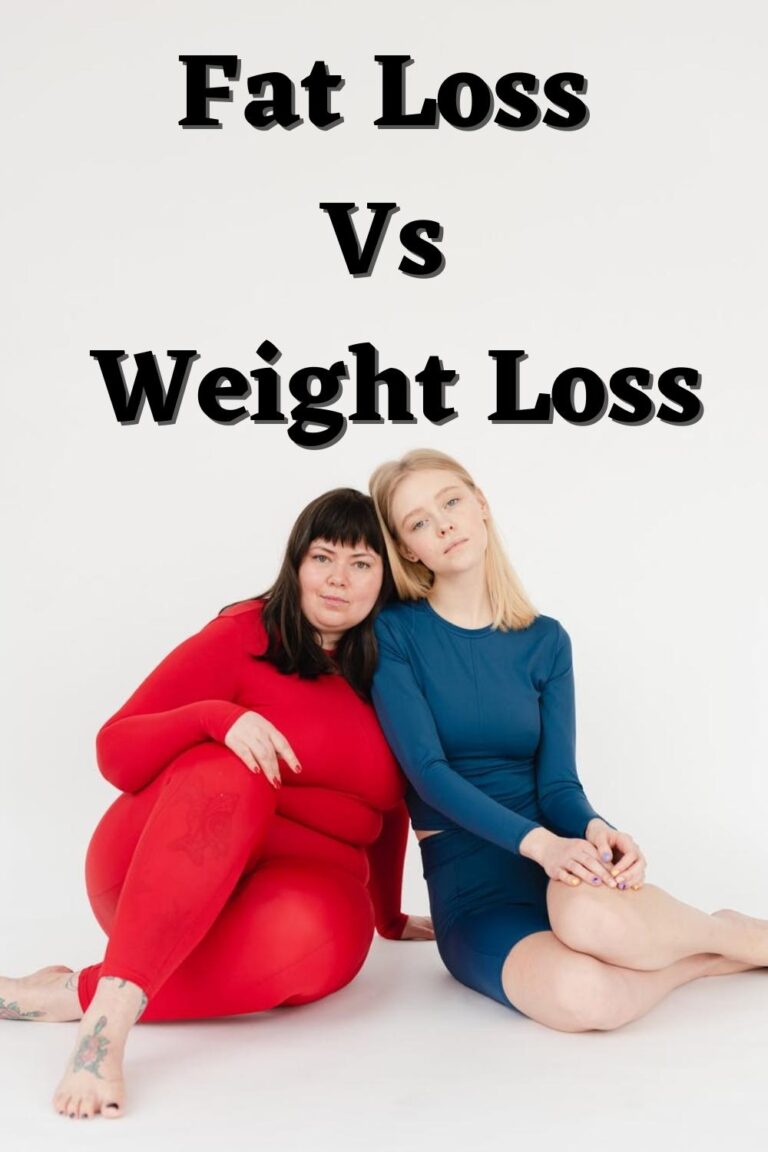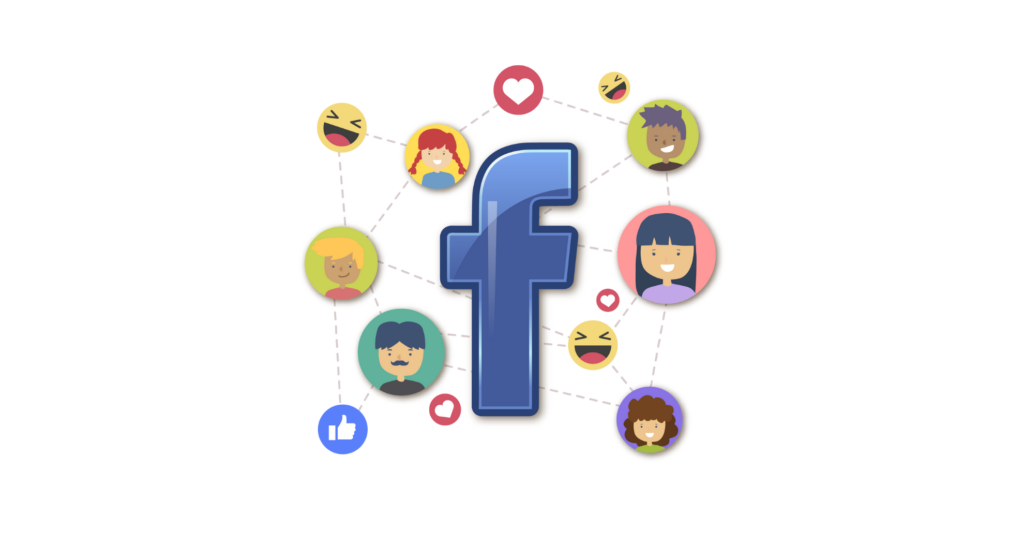15 Best Ways To Lose Weight Without Exercise
Are you someone who's been eager to shed those extra pounds but finds hitting the gym a daunting task? You're not alone. We understand that for some, hitting the gym isn't always feasible or enjoyable.
Whether it's due to a packed schedule, financial constraints, or physical limitations, there are numerous reasons why traditional exercise may not be the best option for everyone.
But here's the good news: Losing weight doesn't have to revolve solely around sweating it out on a treadmill or lifting heavy weights. In fact, focusing solely on exercise while neglecting dietary changes can often lead to frustration and minimal progress.
By making simple yet impactful changes to your daily routine and focusing on sustainable dietary habits, you can take significant strides toward a healthier lifestyle and lose weight.
So, if you're tired of feeling discouraged by the prospect of exercise or have struggled to see results in the past, keep reading. We'll provide you with practical tips on how to lose weight fast naturally and achieve lasting success – no gym membership required.
Can You Lose Weight Without Exercising?
In short, YES!
But let’s get the basics down. Losing weight boils down to a simple equation: burning more calories than you consume. In other words, you need to either increase your calorie expenditure or reduce your calorie intake through meals and snacks. To lose weight successfully, you need to understand this fundamental principle.
Now, while exercise can certainly aid in burning calories and boosting your metabolism, it's not the only path to weight loss.
15 Best Ways To Lose Weight Without Exercise
Whether you’re unable to exercise or you simply would prefer not to, here are 15 of the best ways to lose weight without exercise.
- Cook frequently at home:

Opting for take-out can seem like the perfect solution when you're juggling a hectic schedule or simply not in the mood to cook. However, it's essential to be mindful of the potential pitfalls that come with this convenience.
Many restaurants tend to load up their dishes with excess butter, oil, and fats, unknowingly adding a significant number of extra calories to your meal. Moreover, the portions served at restaurants are often larger than what you might typically consume at home, making it easy to unintentionally overeat and surpass recommended serving sizes.
According to the journal published by Cambridge University, people who make their meals at home more often tend to eat healthier and eat less than those who dine out.
- Eat fiber-rich foods:
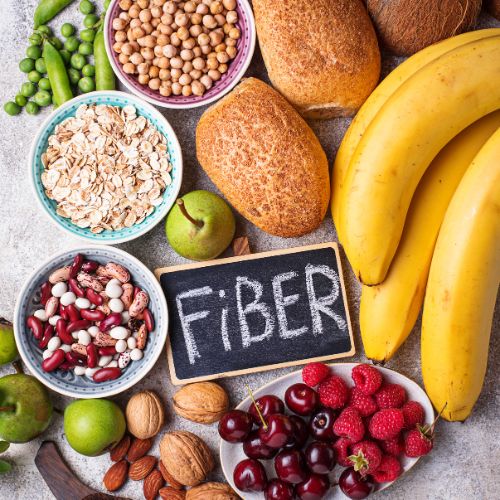
Fiber often doesn't get the recognition it deserves when it comes to our diets, but it plays a crucial role in keeping us healthy. Essentially, fiber is a type of carbohydrate that your body can't fully break down during digestion.
It comes in two forms: soluble and insoluble. Soluble fiber dissolves in water, while insoluble fiber does not. When you consume fiber, it passes through your digestive system largely unchanged, reaching your large intestine where it becomes food for beneficial gut bacteria.
It is these bacteria that help reduce inflammation, which is associated with various lifestyle diseases, including obesity, and help to maintain good health.
- Get Adequate Sleep:

Getting enough quality sleep is crucial for weight loss and overall well-being. Lack of sleep disrupts hormone levels that regulate appetite, increasing cravings for high-calorie foods and leading to weight gain.
A study in 2022 discovered that getting more sleep helped people eat less and burn more calories, which can lead to weight loss. It suggests that making sure you get enough sleep regularly could help prevent obesity and lose weight.
So, aim for seven to nine hours of uninterrupted sleep each night to support your body's natural metabolic processes and promote weight loss. Establish a relaxing bedtime routine, limit screen time before bed, and create a comfortable sleep environment to optimize your sleep quality.
- Manage Stress and Anxiety:

Managing stress and anxiety can significantly impact your weight loss efforts. When stressed, the body releases cortisol, a hormone that can lead to increased appetite and cravings for unhealthy foods high in sugar and fat.
Additionally, stress can disrupt your sleep patterns and lead to emotional eating, further sabotaging weight loss goals. By incorporating stress management techniques you can lower cortisol levels and reduce the likelihood of emotional eating.
Furthermore, reducing stress can improve your sleep quality, allowing your body to rest and recover optimally. When combined with a balanced diet and regular exercise, effective stress management can create a conducive environment for weight loss success. Prioritizing mental well-being alongside physical health is crucial for achieving sustainable weight loss and overall wellness.
- Increase Your Protein Intake:
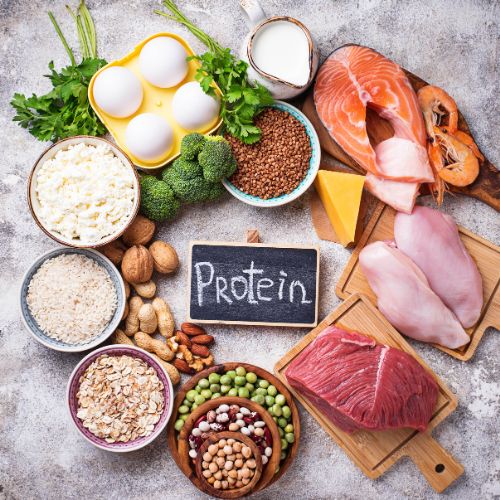
Protein isn't just for building muscles, it also plays a crucial role in managing your appetite. When you eat foods rich in protein, you're more likely to feel full and satisfied, which can help you eat fewer calories overall.
One reason for this is that protein affects hormones that control hunger and fullness, making you less likely to reach for snacks between meals. Starting your day with a protein-rich breakfast can help keep your blood sugar levels stable and stave off cravings later in the day. Plus, combining protein with carbohydrates can help prevent sharp spikes in blood sugar levels, which is especially important after fasting overnight.
Maintaining stable blood sugar levels is not only important for your overall health but can also support weight management. By including high-quality protein sources like chicken, fish, yogurt, and tofu in your diet, you can optimize your blood sugar response and feel more satisfied after meals. Learn more about how to hit your protein goals here.
- Reduce the Intake of Added Sugar

If you've ever tried to lose weight, you've probably heard about the importance of cutting down on sugar intake – and there's a good reason for that. Excessive sugar consumption is a major contributor to obesity.
While junk food and sweets can be tempting, these treats are often packed with calories, added sugars, and unhealthy trans fats, making them detrimental to both your weight and your overall health.
The good news is that reducing your intake of sugary snacks and processed foods can offer more than just weight loss benefits. It can also lead to various other improvements in your health and well-being. So, by making simple changes to your diet like having healthy sweet snacks and cutting back on excess sugars and saturated fats, you can take significant steps towards a healthier, happier you.
- Avoid or Reduce Alcohol Consumption

Alcohol isn't just a social indulgence; it can also impact your weight loss efforts. Not only does it contribute to inflammation in the body, but it's also a significant source of empty calories. Plus, drinking alcohol has been associated with overeating, making it harder to maintain a healthy weight.
Research suggests that cutting back on alcohol can lead to weight loss, especially for individuals who are overweight. Conversely, excessive alcohol consumption has been linked to an increased risk of obesity. So, if you're trying to shed some pounds, it's wise to limit your intake of beer, wine, and spirits. By doing so, you'll not only improve your chances of reaching your weight loss goals but also promote better overall health and well-being.
- Stop Emotional Eating

Emotional eating can sabotage your weight loss efforts, as it often leads to consuming excess calories that your body doesn't need. If you find yourself turning to food for comfort or stress relief, it's essential to find healthier coping mechanisms. One effective strategy is to create a meal plan and schedule that aligns with your dietary goals and lifestyle.
By having structured mealtimes and nutritious options readily available, you can reduce the temptation to snack impulsively and make more mindful food choices throughout the day. Another helpful tool is keeping a food journal to track your eating habits and emotions.
By noting down what you eat and how you feel when you experience cravings, you can gain valuable insights into your relationship with food and identify any underlying triggers for emotional eating. This self-awareness can empower you to make healthier choices, develop more constructive ways of managing your emotions without turning to food, and stop mindless eating.
- Eat Without Distraction

Being mindful of your eating habits can make a big difference in your calorie intake and overall weight. When you're distracted by activities like watching TV or playing video games while eating, it's easy to lose track of how much food you've consumed. This can lead to overeating without even realizing it. If you often find yourself eating meals in front of a screen, you may be unknowingly taking in more calories than your body needs.
These extra calories can quickly add up over time, contributing to weight gain and making it harder to reach your health goals.
Instead of multitasking while eating, try to focus solely on enjoying your food and the experience of eating. Sit down at a table without electronic devices, and take your time to savor each bite. Not only will this help you control your calorie intake, but it can also enhance your enjoyment of meals and promote better digestion.
- Intake More Water

Ensuring you drink enough water throughout the day not only keeps you hydrated but can also support your weight loss goals. Studies suggest that drinking water before meals can help reduce calorie intake, making it easier to manage your weight. When you're properly hydrated, you may also experience fewer cravings for high-calorie snacks and sugary drinks.
Moreover, drinking water can help boost your metabolism, as your body needs water to process calories and fat. By staying hydrated, you can ensure that your body functions optimally, aiding in the efficient burning of calories.Aim to drink at least eight glasses of water per day, and consider keeping a water bottle with you to stay hydrated while on the go.
- Balance Your Carbs Intake
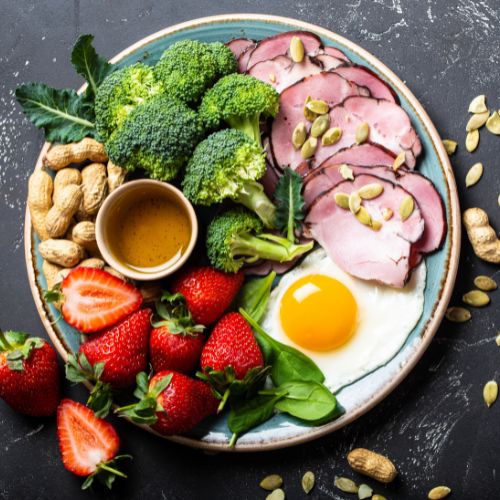
Carbohydrates often get a bad rap when it comes to weight loss, with many people believing that cutting them out completely is the key to shedding pounds. However, the truth is that you don't need to ditch carbs entirely to lose weight effectively.
In fact, carbohydrates are an essential part of a balanced diet and provide your body with the energy it needs to function properly. Instead of eliminating carbs altogether, focus on choosing the right types of carbohydrates and moderating your intake.
- Stop Fad Diets
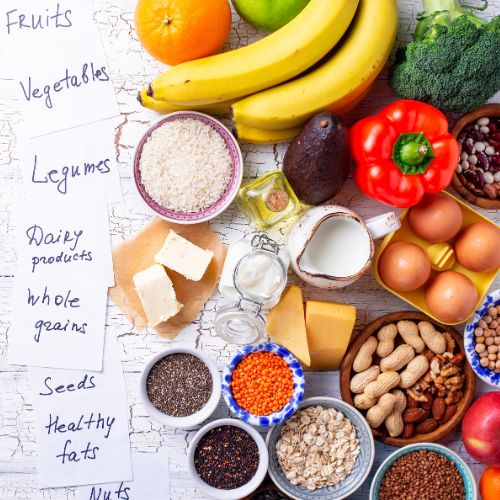
Say goodbye to fad diets and hello to sustainable, long-term success! While trendy diets might promise quick results, they're often hard to stick to and can even be risky to your health. Let's face it, nobody wants to hear about your latest juice cleanse at the dinner table.
Instead of jumping on the latest diet bandwagon, focus on making simple and sensible changes to your eating habits that you can maintain for the long haul. By adopting a balanced approach to nutrition and incorporating healthy habits into your daily routine, you'll set yourself up for lasting success and improved overall well-being.
- Have Probiotics In Your Diet
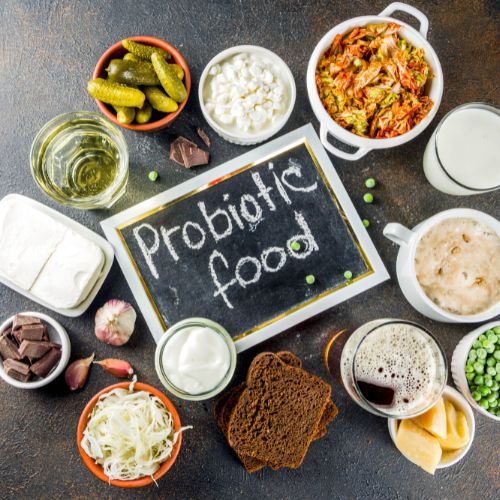
Your gut is home to trillions of bacteria, and not all of them are created equal. Research suggests that the balance of bacteria in your gut, known as microbiota, plays a significant role in weight and metabolism regulation. Some studies have found that obesity may be linked to an imbalance of certain bacterial strains in the gut.
Probiotics are live bacteria and yeasts that promote a healthy balance of gut bacteria. While they're not a magic solution for weight loss, they can certainly support your overall health and immunity.
By adding probiotic-rich foods like yogurt, kefir, sauerkraut, and kimchi to your diet or taking a daily probiotic supplement, you can help maintain a diverse and balanced gut microbiome. This, in turn, may contribute to improved digestion, enhanced immune function, and potentially even better weight management.
- Try Cold Plunge

Cold plunges involve immersing your body in cold water, typically around 50 to 60 degrees Fahrenheit, for a short period. While it might seem uncomfortable at first, proponents of cold plunges swear by their weight loss benefits.
They've been shown to reduce inflammation in the body, which can contribute to weight gain and hinder weight loss efforts. Plus, immersing yourself in cold water can be a powerful stress reliever, and we know that chronic stress can sabotage weight loss goals.
- Dopamine Diet

The Dopamine diet is all about harnessing the power of dopamine – the “feel-good” neurotransmitter in your brain. By making dietary choices that support dopamine production and regulation, you can not only enhance your mood and motivation but also curb cravings and promote weight loss.
Dopamine is closely linked to feelings of pleasure and reward, and certain foods can help increase dopamine levels in the brain. These include protein-rich foods like lean meats, fish, eggs, and legumes, as well as foods rich in tyrosine – an amino acid that serves as a precursor to dopamine production. Additionally, foods high in antioxidants, such as fruits, vegetables, nuts, and seeds, can help protect dopamine-producing neurons from damage.
But the Dopamine Diet isn't just about what you eat – it's also about how you eat. Mindful eating practices, such as paying attention to hunger and fullness cues, savoring each bite, and avoiding distractions during meals, can help regulate dopamine levels and prevent overeating.
Common misconceptions about burning fat
If you've ever tried to lose weight, you've likely encountered a slew of conflicting advice and misinformation about burning fat. We're here to set the record straight and help you achieve your weight loss goals the healthy way.
Misconception 1: Eating less equals more weight loss
It's a common belief that cutting calories is the key to shedding pounds, but it's not always that simple. While creating a calorie deficit is essential for weight loss, drastically reducing your food intake can actually backfire. Severely restricting calories can slow down your metabolism and trigger your body's starvation response, making it harder to lose weight in the long run. Here is the detailed guide on how many meals you should have to lose weight.
Misconception 2: You can spot reduce belly fat.
Despite what many fitness magazines and infomercials may claim, spot reduction is a myth. You can't target fat loss in specific areas of your body by doing endless crunches or using gimmicky ab gadgets. Incorporating a healthy diet, managing stress levels, getting quality sleep, and staying hydrated can all contribute to reducing belly fat without exercise.
Misconception 3: Eating fat makes you fat.
Contrary to popular belief, eating fat doesn't necessarily lead to weight gain. In fact, healthy fats are an essential part of a balanced diet and can actually support weight loss. Foods like avocados, nuts, seeds, and fatty fish are rich in monounsaturated and polyunsaturated fats, which can help keep you feeling full and satisfied while providing important nutrients for overall health.
Misconception 4: Skipping meals is an effective weight loss strategy.
Skipping meals in an attempt to cut calories and lose weight quickly is a common misconception that can actually sabotage your efforts. While it may seem like a simple way to reduce your calorie intake, skipping meals can slow down your metabolism, increase hunger and cravings, and lead to overeating later in the day.
Misconception 5: Dietary supplements are a quick fix for weight loss.
With so many weight loss supplements on the market claiming to offer fast and easy results, it's easy to fall prey to the idea that a pill or powder can magically melt away excess fat. However, most dietary supplements are not regulated by the FDA and may not be safe or effective for weight loss. While some supplements may contain ingredients that can support weight loss when combined with a healthy diet and exercise program, they are not a substitute for healthy lifestyle habits.
Losing weight can be hard, but if you know the truth and use proven methods, you can reach your goals in a healthy and lasting way.
FAQs
Yes, you can still lose weight with limited mobility. Even small changes in your diet and lifestyle, like eating healthier foods and moving more within your abilities, can help you lose weight.
Yes, you can burn calories without exercising by doing everyday activities like walking, cleaning, or even standing instead of sitting and proper diet.
Absolutely! Incorporating a healthy diet, managing stress levels, getting quality sleep, and staying hydrated can all contribute to reducing belly fat without exercise.
While calorie counting can be helpful for some people, it's not always necessary. Focusing on eating whole, nutrient-dense foods and listening to your body's hunger and fullness cues can also lead to successful weight loss.
Yes, incorporating filling, nutrient-rich foods like fruits, vegetables, lean proteins, and whole grains into your diet can help you feel satisfied while still achieving weight loss goals without exercise.
Reference
https://www.ncbi.nlm.nih.gov/pmc/articles/PMC4025680/
https://jamanetwork.com/journals/jamainternalmedicine/fullarticle/2788694
https://www.ncbi.nlm.nih.gov/pmc/articles/PMC4768732/
https://pubmed.ncbi.nlm.nih.gov/18787524/
https://www.nutrisense.io/blog/20-ways-to-lose-weight-without-exercise#3-stay-hydrated
https://www.prevention.com/weight-loss/a30188568/lose-weight-without-exercise-0/



